
Calhoun County is a county in the U.S. state of West Virginia. As of the 2020 census, the population was 6,229, making it the third-least populous county in West Virginia. Its county seat is Grantsville. The county was founded in 1856 and named for South Carolina politician John C. Calhoun.

Hattie McDaniel was an American actress, singer-songwriter, and comedian. For her role as Mammy in Gone with the Wind (1939), she won the Academy Award for Best Supporting Actress, becoming the first African American to win an Oscar. She has two stars on the Hollywood Walk of Fame, was inducted into the Black Filmmakers Hall of Fame in 1975, and in 2006 she became the first Black Oscar winner honored with a U.S. postage stamp. In 2010, she was inducted into the Colorado Women's Hall of Fame. In addition to acting, McDaniel recorded 16 blues sides between 1926 and 1929 and was a radio performer and television personality; she was the first Black woman to sing on radio in the United States. Although she appeared in more than 300 films, she received on-screen credits for only 83. Her best known other major films are Alice Adams, In This Our Life, Since You Went Away, and Song of the South.

Hattie Ophelia Wyatt Caraway was an American politician who became the first woman elected to serve a full term as a United States Senator. Caraway represented Arkansas. She was the first woman to preside over the Senate. She won reelection to a full term in 1932 with the active support of fellow Senator Huey Long, of neighboring Louisiana.

The Hughleys is an American sitcom that aired on ABC from September 22, 1998 to April 28, 2000 and on UPN from September 11, 2000 to May 20, 2002. It starred comedian D. L. Hughley as the main character, Darryl Hughley, and Elise Neal as Yvonne, his hard-working wife, who move their family from the inner city to suburban Los Angeles.

Panama Hattie is a 1940 American musical with music and lyrics by Cole Porter and book by Herbert Fields and B. G. DeSylva. The musical is about a nightclub owner, Hattie Maloney, who lives in the Panama Canal Zone and ends up dealing with both romantic and military intrigue. The title is a play on words, referring to the popular Panama hat.
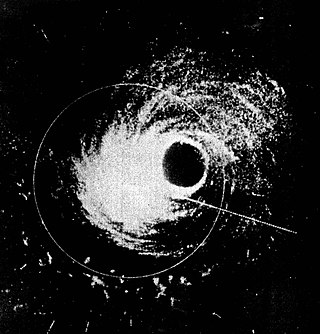
Hurricane Hattie was one of the strongest and deadliest tropical cyclones of the 1961 Atlantic hurricane season, reaching a peak intensity as a Category 5 hurricane. The ninth tropical storm, seventh hurricane, fifth major hurricane, and second Category 5 of the season, Hattie originated from an area of low pressure that strengthened into a tropical storm over the southwestern Caribbean Sea on October 27. Moving generally northward, the storm quickly became a hurricane and later major hurricane the following day. Hattie then turned westward west of Jamaica and strengthened into a Category 5 hurricane, with maximum sustained winds of 165 mph (270 km/h). It weakened to Category 4 before making landfall south of Belize City on October 31. The storm turned southwestward and weakened rapidly over the mountainous terrain of Central America, dissipating on November 1.

Dead Man's Folly is a work of detective fiction by Agatha Christie, first published in the US by Dodd, Mead and Company in October 1956 and in the UK by the Collins Crime Club on 5 November of the same year. The US edition retailed at $2.95 and the UK edition at twelve shillings and sixpence (12/6). It features Hercule Poirot and Ariadne Oliver.
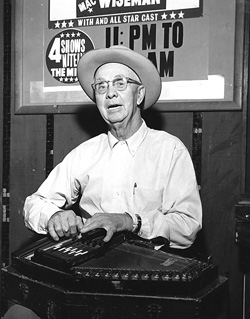
Ernest Van "Pop" Stoneman was an American musician, ranked among the prominent recording artists of country music's first commercial decade.
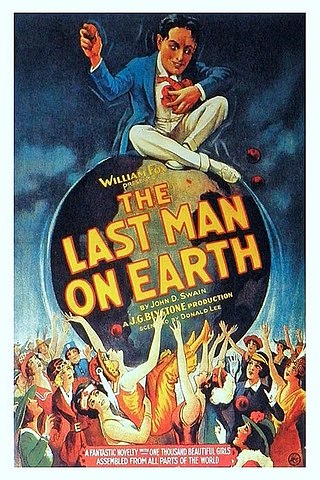
The Last Man on Earth is a 1924 American silent comedy film directed by John G. Blystone, starring Earle Foxe and produced by Fox Film Corporation and based on the short story of the same name by John D. Swain that appeared in the November 1923 issue of Munsey's Magazine. The film was remade as the semi-musical comedy It's Great to Be Alive (1933) and in Spanish as El último varon sobre la Tierra (1933), and influenced the sci-fi novel Mr. Adam (1946).
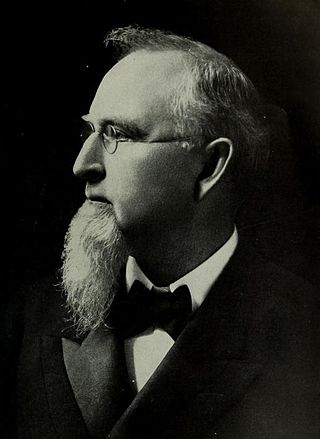
Thomas Henry Carter was an American politician, who served as territorial delegate, a United States representative, and a U.S. Senator from Montana. Carter was born in Junior Furnace, Ohio, on October 30, 1854. Born to an Irish immigrant family, he spent most of his childhood in on small farms in the Midwest. In 1882, he moved to Helena, Montana to begin his law career there. He entered then politics, and was elected Montana's territorial delegate in 1888. Following Montana's admission into the union as a state, Carter represented the state in U.S. House of Representatives. He ran for re-election in 1890, but was narrowly defeated by Democrat William W. Dixon in the general election.
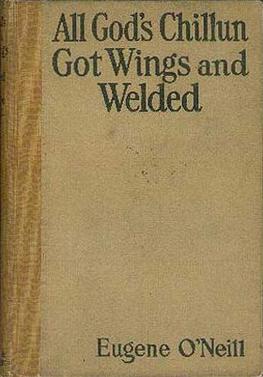
All God's Chillun Got Wings (1924) is an expressionist play by Eugene O'Neill about miscegenation inspired by the old Negro spiritual. He began developing ideas for the play in 1922, emphasising its authenticity in his notes: "Base play on his experience as I have seen it intimately." O'Neill wrote the play in the autumn of 1923 and revised the text only slightly for its 1924 publication. Arguably one of his most controversial of plays, it starred Paul Robeson in the premiere, in which he portrayed the Black husband of an abusive White woman, who, resenting her husband's skin colour, destroys his promising career as a lawyer.
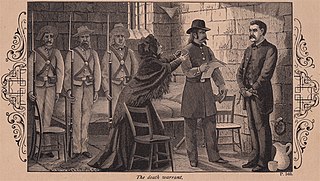
Hattie Lawton, also known as Hattie H. Lawton, Hattie Lewis, and Hattie Lewis Lawton was an American detective, who worked for Allan Pinkerton, of the Pinkerton Detective Agency. Lawton may have been born around 1837, although most details of her life, before and after the American Civil War, are unknown. "[Hattie] Lawton was part of Pinkerton's Female Detective Bureau, formed in 1860 to 'worm out secrets' by means unavailable to male detectives."

Judge Priest is a 1934 American comedy film starring Will Rogers. The film was directed by John Ford, produced by Sol M. Wurtzel in association with Fox Film, and based on humorist Irvin S. Cobb's character Judge Priest. The picture is set in post-reconstruction Kentucky and the supporting cast features Henry B. Walthall, Hattie McDaniel and Stepin Fetchit. It was remade by Ford in 1953 as The Sun Shines Bright.
Maxwelton is an unincorporated community in Greenbrier County, West Virginia, United States. Maxwelton is located on U.S. Route 219, 5 miles (8.0 km) north-northeast of Lewisburg. Maxwelton has a post office with ZIP code 24957.
Hattie is a feminine given name.

Can This Be Dixie? is a 1936 American musical comedy film directed by George Marshall and featuring child star Jane Withers along with [Slim Summerville]] and Helen Wood.

Panama Hattie is a 1942 American film based upon the Broadway musical of the same name. It was produced by Arthur Freed and directed by Norman Z. McLeod.

Arthur Henry Dutton was an American career soldier. A trained military engineer and high graduate of West Point, he served mostly as an infantry officer in the Union Army, fighting within the Eastern Theater during the American Civil War.

Hattie T. Scott Peterson (1913–1993) is believed to be the first African-American woman to gain a bachelor's degree in civil engineering.

Hi, Beautiful is a 1944 American comedy film directed by Leslie Goodwins and written by Dick Irving Hyland. The film stars Martha O'Driscoll, Noah Beery Jr., Hattie McDaniel, Walter Catlett, Tim Ryan, Florence Lake, Grady Sutton, Lou Lubin and Virginia Sale. The film was released on December 18, 1944, by Universal Pictures.



















